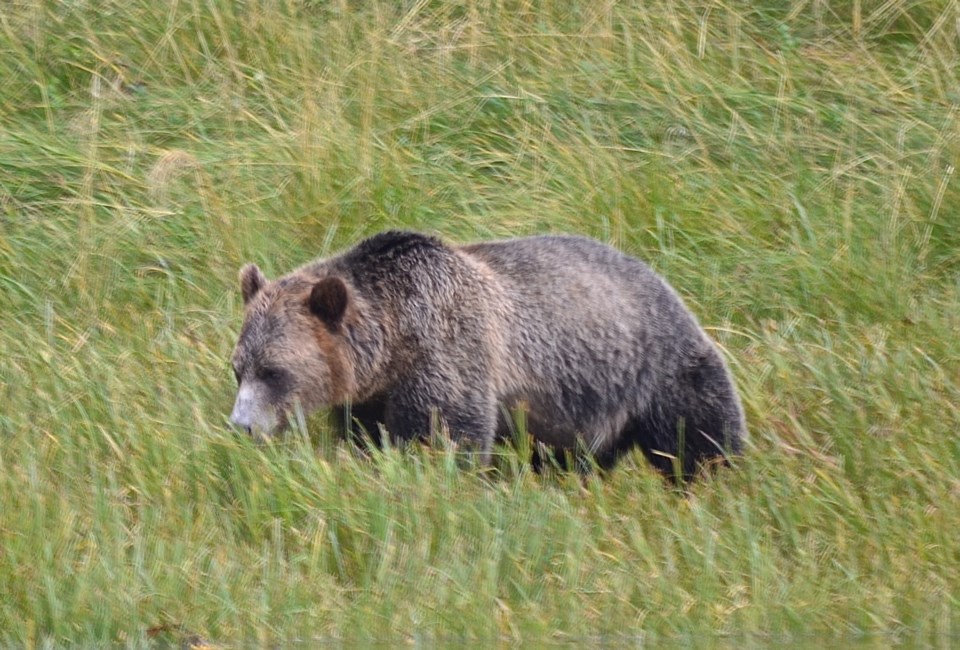I’ve spent most of my life advocating for the protection of wildlife habitat and planning the sustainable use of the province’s water, land and natural resources. I’ve done this because I learn from nature, I enjoy being outside and I love this province. It is also important that we all have a healthy environment for current and future generations.
I feel privileged to have hiked, rafted and birdwatched in many corners of the province. I have experienced fast-flowing rivers, beautiful glaciers and big old trees. I have been fortunate enough to have orca breach beside my kayak, or watch grizzlies fish for salmon. British Columbia is a gift to the world and we must be ever vigilant to keep it that way.
When the province was first established in 1871, a key principle was that the lands would remain in public ownership and that government would steward those lands for the benefit of the people.
The money generated from the use of our abundant minerals, forests and agricultural lands would then build community hospitals, provide education for our children and support art projects and theatre productions. What a grand model, a vision well worthy of public support.
However, if you go out to the woods today, you will be surprised to discover how poorly our lands, waters and natural resources are being managed. The B.C. government has abandoned the notion of stewarding the land for the future and is treating the province as “government land” to do with as they wish — with seemingly little respect for conservation, economic sustainability and the obligation to honour the rights of Indigenous people.
With little public knowledge, and next-to-no public input, the B.C. government has undermined the public right to have a healthy and ecologically rich natural environment. Their approach is deliberate, and has occurred by removing clear legal standards from our laws and by turning authority over to industry to make decisions on public health and the environment.
The government calls this regulatory outsourcing professional reliance. It cut professional staff working for the province by 25 per cent, and instead promised that professionals hired by industry would protect the public interest. They said they would offset this transfer of power by bolstering government staff and budget to ensure proper monitoring, compliance and enforcement.
Unfortunately, neither has happened.
This “professional reliance” approach lacks credibility, and leads to conflict and uncertainty on the land base. It harms the health of British Columbians, degrades our environment and has resulted in the loss of public trust and confidence in the decision-making process.
We now learn about events such as Mount Polley, hazardous-waste pollution, contamination of drinking water and forest mismanagement after the fact, when little can be done. We live in a province with the most biodiversity in Canada, and our management approach, instead of protecting fish and wildlife habitat, is making matters worse. As a result, the risk to our numerous endangered species is multiplying.
I look forward to the government taking action to update the Mining Act, reform environmental assessment, protect endangered species, re-establish land-use planning, and manage water sustainably. However, each of these reforms needs a proper legal professional framework that we can trust and that provides certainty, as opposed to the current secretive and damaging outsourcing to industry.
I look forward to the time when we can go down to the woods knowing that our forests, rivers and lakes are being managed with the long-term in mind. We need government stewardship, not industry-led stewardship. We need stewardship that will build public confidence, provide clarity and ensure that government is setting standards, monitoring those standards for compliance, and enforcing those standards as required. We need First Nations involved in a manner that respects their title and rights.
B.C. is globally significant because of its variety of wildlife and integrity of its natural systems. But, without immediate action that corrects how we manage our mines, our oil and gas wells, our forests and our rivers, the wonders of this province are vulnerable to rapid loss, with little chance of recovery.
So, go outside, enjoy this great province, and if you witness mismanagement of our forests or waters, contact your MLA. Let them know that you want an improved resource-management regime, with B.C. being developed in the manner that our first politicians envisioned.
Bob Peart is a biologist and educator who has spent the past 40 years working to protect wildlife habitat, parks and wild landscapes throughout the province.



